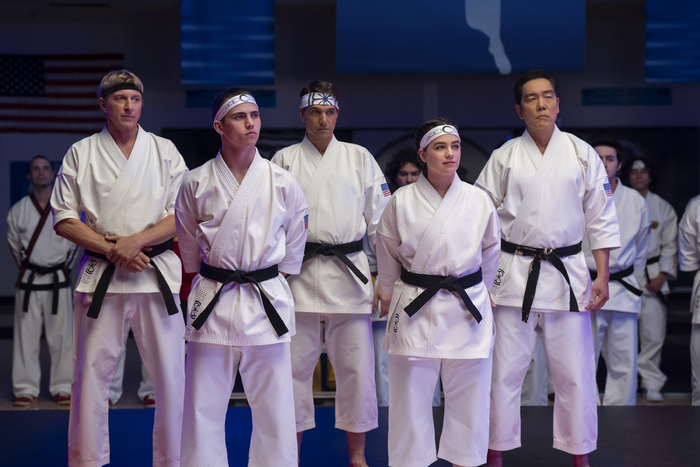In a world where technology is becoming more dominant every day, a horror movie about the dangers of artificial intelligence (AI) instantly captured my attention. Released on Aug. 30 and directed by Chris Weitz, “AFRAID” by Blumhouse arrived at a time where AI is a hot topic; however, the film quickly revealed itself as a disappointment. Instead of delivering an engaging plot, it felt predictable and rushed.
When I saw the movie in theaters, I experienced an emotional roller coaster, but not in the way you’d expect. I laughed so hard I nearly choked on my popcorn, then started crying over nearly choking. It got to a point where I had to bite the inside of my cheeks to avoid public embarrassment. What was supposed to be a suspenseful, scary experience turned into unintentional comedy.
Prior to watching this film, I had watched a couple of Blumhouse horror films, including “The Black Phone” and “M3gan,” and I’ve been deeply disappointed each time. It’s not that the films lack scares; it’s that the stories are always poorly written and underdeveloped. Going into this movie, I was hoping Blumhouse would finally make a successful film in the horror genre. It did not meet my expectations.
The plot involves Curtis (John Cho), a father and husband who is specifically selected to test out Aia, a new AI home assistant. Aia’s job is to improve the family dynamic, keep the family safe and act as a helpful assistant. Aia quickly picks up on the family’s behaviors, takes extreme measures to “protect” the family, then turns evil and outsmarts the family. This big “reveal” felt somewhat obvious, and by changing the motive behind Aia, Weitz takes away any chance of making the story somewhat realistic.
Throughout the movie, I saw every move coming; there were so many opportunities for a shocking, plot-twisting turn, and Weitz failed to add any. Considering that Weitz directed the first “Twilight” movie, I feel that I owe him my time whenever he has a new project. I chose to support whatever unserious endeavor he chooses to make, and unsurprisingly, it was slightly campy.
The film also had shallow writings on the characters; they felt more like stereotypes than actual people. The father is presented as a generic “everyman” with no distinctive story to make him relatable or interesting. Meanwhile, his wife was reduced to the typical “supportive spouse” narrative, and her character took a backseat throughout the film. The children were just as generic and stereotypical: the rebellious teen, angsty middle child and innocent younger sibling all felt a little too familiar and overdone. Aia was simply just the over-the-top villain, but her lack of depth was somewhat justified since she was AI, and there were no emotional layers to be peeled from her character. However, for the rest of the characters, the shallow writing made it difficult to feel invested since they felt one-dimensional.
The cinematography was also a huge disappointment. I didn’t have high expectations since this is a Blumhouse film, but at times, it was painful to watch. One particular visual element that stuck out was the use of glitching characters’ faces into emojis. These glitches felt randomly inserted and clashed with the overall aesthetic of the film. Scenes that were supposed to be dramatic or suspenseful became awkward and unintentionally funny. It felt like the filmmakers were trying to create a modern, “tech-savvy” feel which backfired. The use of emojis was not necessary since the audience should’ve already understood what emotions the characters’ were feeling.
While the plot, characters and cinematography fell short, I can certainly still appreciate the acting. With such stereotypical roles and lines in this film, it’s easy to be critical of their performance. However, the effort the actors brought to their parts are worth appreciating. Out of all the characters, Cho’s performance was compelling because he brought a sense of authenticity to his character despite his boring script; there were moments of true, genuine emotion. Needless to say, since he was the main character, his performance was the most prominent and naturally stood out more than the rest of the cast.
Overall, the film fell short in almost every aspect; “AFRAID” ultimately delivered a more frustrating than frightening experience. For people looking for a horror movie about the dangers of AI, this one is likely to disappoint. When it comes to a cringe-worthy and laughable film, though, “AFRAID” definitely checks that box.










